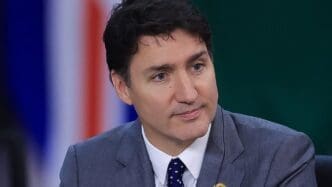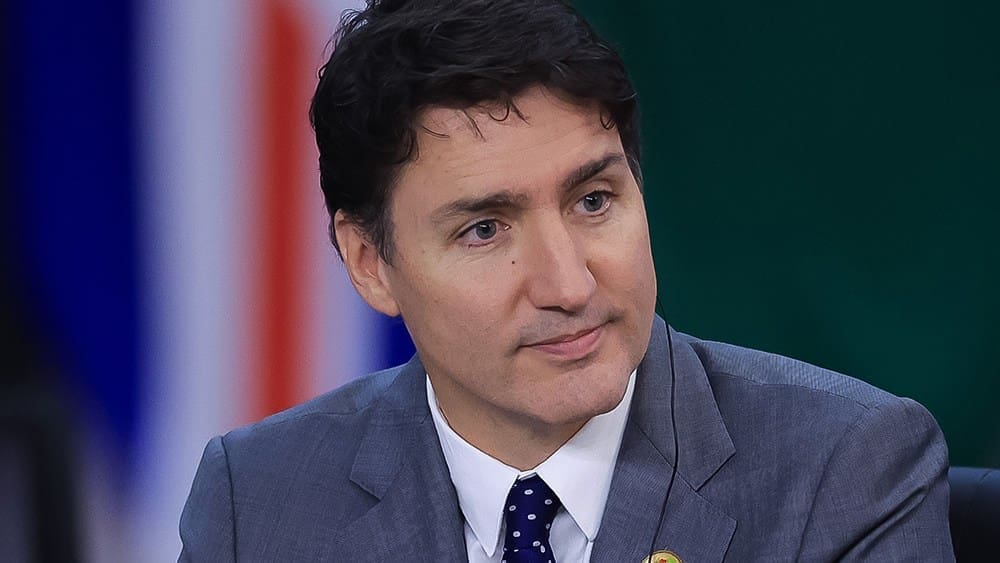In a move that has stirred the Canadian political scene, Prime Minister Justin Trudeau has declared his resignation. The unexpected announcement comes during a press conference where Trudeau emphasized his dedication to the nation’s interests. Although stepping down, he will continue in his role until the Liberal Party appoints a new leader, ensuring a smooth transition.
The decision, as Trudeau pointed out, follows a tumultuous period of parliamentary lock-ups. The longest minority parliament session in history has plagued his tenure, a fact he passionately outlined. Trudeau expressed that internal battles have distracted from his duties, thus prompting his decision to step back.
Trudeau’s Resignation Announcement
Prime Minister Justin Trudeau announced his resignation amidst a backdrop of political challenges. Speaking candidly, he cited a lack of support within parliament as a pivotal factor. While Trudeau has always been a fighter, internal strife made it clear that stepping down was in the best interest of Canadians and the Liberal Party. His resignation reflects a desire to let a new leader guide the party’s future.
Political Turmoil and Family Discussions
Trudeau disclosed that conversations with his family over the holidays played a significant role in his decision. His children were among the first to know, informed during a family dinner. Trudeau also indicated that the Liberal Party will undergo a competitive, nationwide process to elect a new leader, a task he entrusted to the party president.
The announcement follows months of political gridlock, leaving parliament paralyzed. Trudeau articulated that his efforts to resolve issues were unsuccessful, prompting him to ask the governor general to prorogue parliament until March. This move aims to reset the legislative process and refocus the party’s agenda without his leadership.
Liberal Party Leadership Transition
The process to find Trudeau’s successor is set to begin immediately. A new leader will bring fresh perspectives to the party, aligning with its core values. Trudeau expressed excitement over the transition, inviting Canadians to embrace this change as an opportunity to redefine the political landscape.
Trudeau has been the party leader since 2013, steering the Liberal Party through complex times. His leadership saw three electoral victories, a testament to the party’s resilience. However, recent approval ratings signaled a need for change, with polls showing only 22% support for Trudeau’s leadership.
Speculation about potential contenders for the Liberal leadership has begun, though no clear favorite has emerged. The outcome will influence Canada’s political future, as the new leader will face the task of reshaping the party’s image and policies ahead of an inevitable election.
Challenges Facing the Incoming Leader
The next leader of the Liberal Party will need to address pressing issues such as economic recovery and international relations. Trudeau’s resignation opens a path for new strategies to deal with these challenges. The party must also regain public trust to compete effectively in upcoming elections.
The new leader will inherit a responsibility to fulfill the promises made during Trudeau’s tenure. This includes navigating Canada through a post-pandemic recovery and managing complex global dynamics. The task is daunting yet presents an opportunity for innovative leadership.
Internal party dynamics will also be a focus, given the strife that characterized Trudeau’s later years. Resolving these internal conflicts will be crucial for the new leader to establish a cohesive and forward-thinking team.
Public Reaction and Political Implications
Trudeau’s resignation has sparked varied reactions from the public and political analysts alike. While some commend his decision as a selfless act for the good of the party, others view it as a strategic move in light of declining support.
The prospect of a snap election looms, as Trudeau’s departure shakes up the current political order. This could lead to no-confidence measures, further altering the landscape. The coming months will be critical in determining the direction of Canadian politics.
The Influence of Polls and Public Opinion
Recent polls played a significant role in Trudeau’s decision to step down, reflecting diminishing public confidence. The Conservatives, led by Pierre Poilievre, are gaining traction, posing a genuine threat to the Liberal dominance in Canadian politics.
Public opinion has been shaped by various factors, including economic issues, healthcare, and international politics. Canadians are looking for decisive leadership to navigate these challenges, as evidenced by the fluctuating poll numbers.
Trudeau’s acknowledgment of these polls underscores his awareness of the political climate. His decision to resign is seen as a step towards revitalizing the Liberal Party and addressing the pressing concerns of the electorate.
Trudeau’s Legacy and Future Prospects
Despite controversies, Trudeau leaves behind a significant legacy. He has been instrumental in progressive reforms and has positioned Canada as a leader in climate change initiatives. His vision for a more inclusive nation remains a cornerstone of his political career.
With his departure, Trudeau plans to remain active in public service, albeit in a different capacity. His future endeavors will undoubtedly reflect his commitment to serving Canadians and contributing to the global discourse on key issues.
Trudeau’s leadership demonstrated resilience, navigating challenges while maintaining a focus on national interests. As he steps back, his legacy will continue to influence Canadian politics and inspire future leaders.
Trudeau’s Final Address to the Nation
In his final address, Trudeau thanked Canadians for their unwavering support throughout his years in office. He reiterated his belief in the country’s potential and expressed hope for its future under new leadership.
Trudeau’s emotional farewell included a promise to assist in the transition and ensure stability until a successor is named. He remains optimistic about the potential for growth and unity among Canadians.
The Road Ahead for Canadian Politics
Canadian politics stands at a crossroads with Trudeau’s resignation. Political parties must adapt quickly to the evolving landscape, preparing for either an abrupt election or continued governance under a new Liberal leader.
The coming months will test the resilience of Canadian democracy. Political leaders and citizens alike must engage in thoughtful discourse to address the nation’s challenges and elevate its status on the global stage.
Anticipating the Selection Process
As the Liberal Party gears up to select a new leader, the spotlight is on the selection process itself. The party’s approach will set a tone for the future, potentially redefining its identity. Canadians remain watchful, eager to see how this political transformation unfolds.
Trudeau’s decision marks a significant shift in Canadian politics, opening a new chapter for the Liberal Party. As the nation waits for a new leader, the path ahead is filled with challenges and possibilities.
Source: Variety







